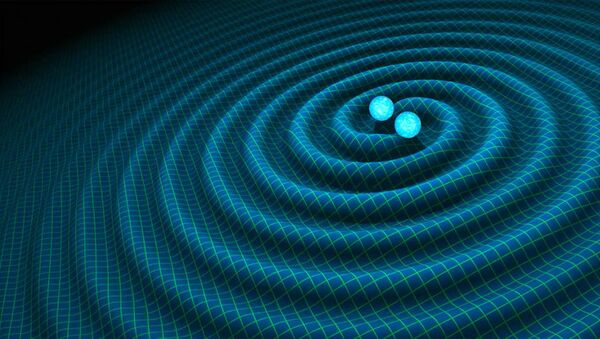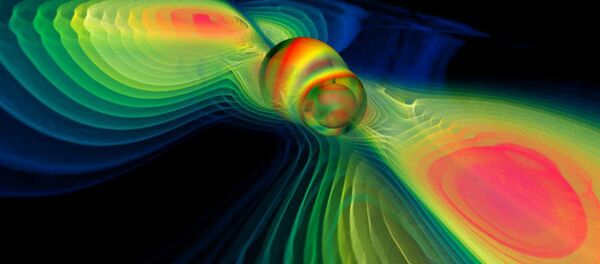"Our interest in trying to detect gravitational waves is to give us a completely new way to probe the universe, and to explore regions of the universe where gravity is very strong," Martin Hendry, head of the School of Physics and Astronomy at the University of Glasgow, tells Radio Sputnik.
"Sometimes there is no light emitted by the astronomical object, so that means we couldn’t understand them, we couldn’t explore them any other way using any of the forms of light that astronomers have been using for many centuries."
Gravitational waves have long been theorized as part of Albert Einstein’s theory of general relativity. If the fabric of spacetime is flexible enough that it can be altered by large planetary bodies, then, the theory went, alterations in the fabric should also ripple outward.
Thanks to a pair of state-of-the-art labs – one in Louisiana, the other in Washington State – scientists have now confirmed Einstein’s predictions.
"In principle, if I shake my fist, then I am changing the curvature of space and time because I’m moving my hand, but I’m not doing it fast enough, or with enough mass, to really produce gravitational waves that we could hope to measure," he says.
"So we need to use the cosmos as a laboratory, and we need to use masses which are almost unimaginably greater than anything we have here on Earth."
In this case, scientists were able to detect the waves produced by a pair of colliding black hole.
Einstein’s calculations paved the way for a number of modern inventions we now take for granted. Now that we have a better understanding of gravitational ways, we could begin to apply that knowledge in similar ways.
"Who knows, in the far future, we may be able to harness and manipulate gravitational waves to use them for technological applications, just like…radio waves from your smartphone," Hendry says.
The discovery came about as part of an international effort and cost over $1 billion. While it may be difficult to grasp how this information will affect people's’ everyday lives, Hendry points out that in addition to knowledge for knowledge’s sake, scientific discovery offers a number of unintended, positive consequences.
"The technology we acquired to detect [the waves] is already changing our society and aspects of our everyday lives. The lasers that we used to detect these gravitational waves, the suspension systems that we used to suspend the mirrors, those involve technologies and processes that are really pushing at the cutting edge of industry…
"That’s the way it always goes with science, that the innovations are led by trying to answer these big questions about the universe. And sooner or later, they find their way into everyday devices like cellphones, or cameras, or lasers for medical physics."




